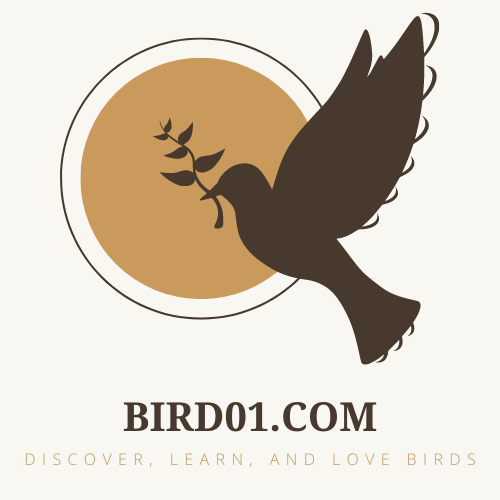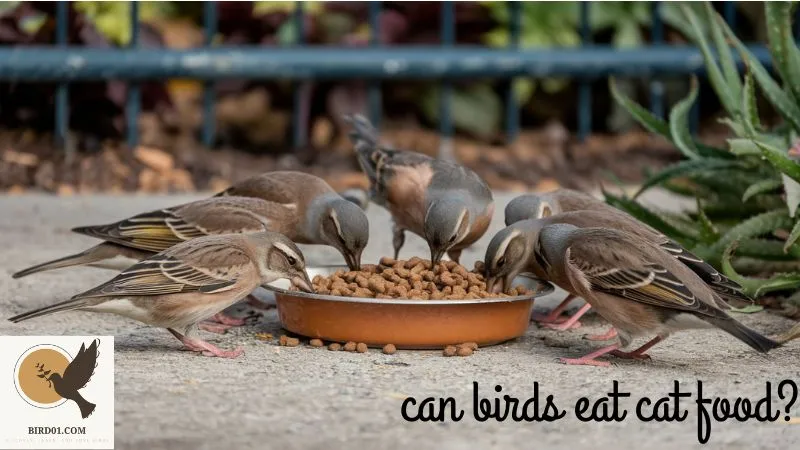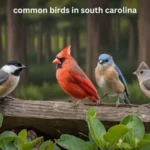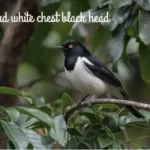Bird Raising Tips
Can Birds Eat Cat Food? Understanding the Risks and Benefits
When it comes to caring for our feathered friends, nutrition is paramount. Bird owners often seek various food options to ensure their birds receive the necessary nutrients. One question that frequently arises is whether birds can eat cat food. This article from Bird01.com explores the potential risks and benefits of feeding cat food to birds, helping you make informed decisions about your pet’s diet.
The Nutritional Composition of Cat Food
Cat food is formulated specifically for felines, providing the necessary nutrients they require. Typically, it contains high levels of protein and fat, which are essential for a cat’s growth and energy. The primary ingredients in most cat foods include:
- Meat and Meat By-Products: These provide high-quality protein, essential for muscle maintenance.
- Grains and Vegetables: These are added for carbohydrates, fiber, and other nutrients.
- Fats: Essential fatty acids are crucial for energy and maintaining healthy skin and fur.
- Vitamins and Minerals: Cat foods are fortified with essential vitamins and minerals, such as taurine, which is crucial for feline health.
While some of these components might be beneficial for birds, it is essential to consider their unique dietary needs.
Can Birds Eat Cat Food?
Birds and cats have vastly different digestive systems. Birds have a faster metabolism and require a diet that is lower in fat and higher in carbohydrates, fruits, and vegetables. While birds may nibble on cat food, it is not formulated to meet their specific nutritional requirements. Some factors to consider include:
- Protein Levels: Birds do require protein, but excessive protein can lead to health issues. Cat food often contains higher protein levels than what is suitable for birds.
- Fat Content: Many cat foods are rich in fats, which can be detrimental to birds, leading to obesity and related health problems.
- Nutritional Balance: Birds require a varied diet rich in fruits, vegetables, and seeds. Cat food lacks many of the essential nutrients found in a bird’s natural diet.
- Digestive Health: Birds have a unique digestive system that may not break down certain ingredients found in cat food effectively. This could lead to digestive problems.
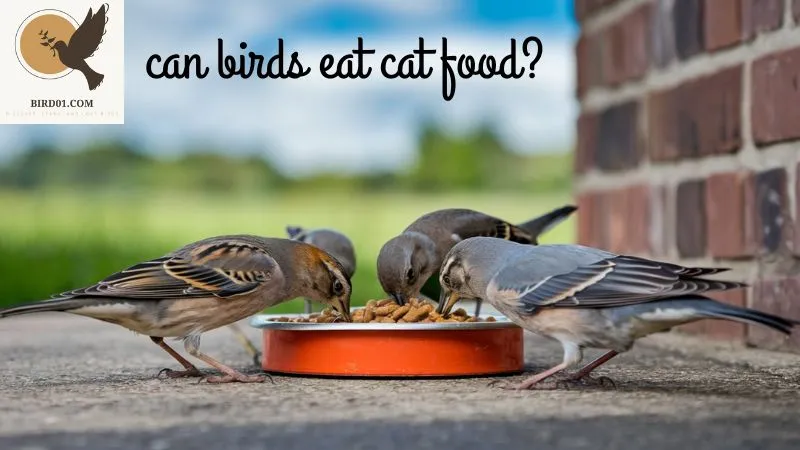
Potential Risks of Feeding Cat Food to Birds
While some birds might enjoy the taste of cat food, there are several risks associated with feeding it to them:
- Obesity: The high fat content in cat food can lead to obesity in birds, which is a significant health risk. Obesity can cause various complications, including heart disease and liver problems.
- Nutritional Deficiencies: Relying on cat food can result in nutritional deficiencies in birds, as it does not provide all the essential vitamins and minerals they need.
- Toxic Ingredients: Some cat foods may contain ingredients that are harmful to birds. For instance, certain artificial preservatives and flavorings can be toxic to avian species.
- Behavioral Changes: A diet high in fat and protein can alter a bird’s behavior, making them more aggressive or less active.
When Might Cat Food Be Acceptable?
There are some circumstances where small amounts of cat food might be acceptable for birds:
- Occasional Treat: A few kibbles of dry cat food can serve as an occasional treat, but it should not replace a balanced diet specifically formulated for birds.
- Emergency Situations: In a pinch, if no bird food is available, offering a small amount of cat food may be better than allowing the bird to go hungry. However, this should only be a temporary solution.
- Supplementation: Some bird owners may use cat food as a temporary supplement if they are out of bird food, but they should switch back to a proper diet as soon as possible.
Alternatives to Cat Food for Birds
If you’re looking for nutritious options for your birds, consider the following alternatives:
- Commercial Bird Feed: Look for high-quality bird feed that is specifically formulated for your bird’s species. These mixes often contain a variety of seeds, nuts, fruits, and vegetables.
- Fresh Fruits and Vegetables: Many birds enjoy fresh produce. Fruits like apples, bananas, and berries, as well as vegetables like carrots and leafy greens, provide essential nutrients.
- Cooked Grains: Cooked rice, quinoa, and oats can be great additions to a bird’s diet, offering carbohydrates and fiber.
- Specialty Bird Treats: Many pet stores sell treats designed specifically for birds, which can provide variety and enrichment.
Observing Your Bird’s Health
If you have inadvertently fed your bird cat food, monitor them for any adverse effects. Signs of distress can include:
- Changes in appetite
- Increased lethargy
- Diarrhea
- Feather plucking or other unusual behaviors
If you notice any of these symptoms, it’s essential to consult a veterinarian experienced with avian care.
Conclusion
While birds might occasionally nibble on cat food without immediate harm, it is not an appropriate or balanced diet for them. The risks associated with feeding cat food, such as obesity and nutritional deficiencies, far outweigh any potential benefits. Instead, prioritize a diet rich in seeds, fruits, and vegetables specifically designed for birds.
By ensuring your birds receive the proper nutrition, you contribute to their health, happiness, and longevity. For more insights into bird care and nutrition, visit Bird01.com, where you can find a wealth of information tailored to avian enthusiasts.
By making informed dietary choices, you can help your feathered friends thrive in a healthy and happy environment.
